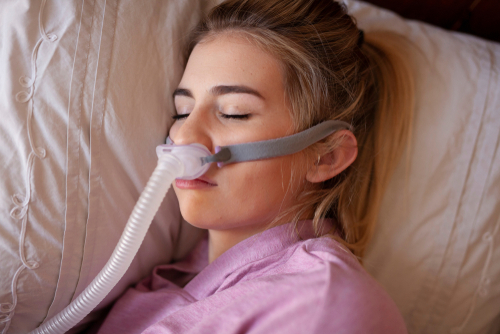Tips for a Safe and Comfortable Travel Experience
Traveling can be an exciting adventure, but for those with sleep apnea, it can also present unique challenges. Whether you’re traveling for business or pleasure, it’s essential to ensure that your sleep apnea is managed effectively to maintain your health and well-being. Our Windsor, CT sleep apnea specialist, Dr. Roberta Garceau will provide you with tips and strategies to make your travel experience as smooth as possible while keeping your sleep apnea under control.
If you’re planning on traveling soon and need some useful tips, don’t hesitate to contact our Windsor sleep specialist by calling (860) 254-6189.
Preparing for Your Trip: What to Pack
 When traveling with sleep apnea, preparation is key. Here are some essential items to pack:
When traveling with sleep apnea, preparation is key. Here are some essential items to pack:
- CPAP Machine: If you use a CPAP (Continuous Positive Airway Pressure) machine, it’s essential to bring it along. Ensure it’s in good working condition and packed in a carrying case.
- Power Adaptors and Batteries: Check the power requirements of your destination and bring the necessary adaptors. If you’re traveling to a remote area, consider carrying extra batteries or a portable power source.
- Distilled Water: If your CPAP machine uses a humidifier, bring enough distilled water to last your trip, or find out if it will be available at your destination.
- Medical Documentation: Carry a copy of your prescription, a note from Dr. Garceau about your sleep apnea condition, and details of your CPAP machine. This documentation can be helpful during airport security checks and in case of a medical emergency.
- Comfortable Pillows: A supportive pillow can make a significant difference in your sleep quality. Consider packing a travel-sized pillow that works well with your CPAP mask.
Tips for Air Travel with Sleep Apnea
Flying with sleep apnea requires some special considerations. Here are a few tips to help you have a smoother journey:
- Notify the Airline: Inform the airline about your CPAP machine when booking your flight. Most airlines allow you to bring medical devices in addition to your regular carry-on allowance.
- Security Screening: At the security checkpoint, your CPAP machine may need to be inspected separately. Place it in a clear plastic bag to keep it clean during the inspection.
- In-Flight Use: If you plan to use your CPAP machine during the flight, check with the airline in advance to ensure power outlets are available. Some airlines provide special adapters for medical devices.
- Stay Hydrated: The dry air in the cabin can make you feel more congested. Drink plenty of water and avoid caffeine and alcohol, which can exacerbate sleep apnea symptoms.
Managing Sleep Apnea on Road Trips
Traveling by car offers more flexibility, but there are still precautions to take:
- Rest Stops: Plan for regular rest stops to stretch your legs and stay alert. Driving long distances without breaks can increase fatigue, which is dangerous for those with sleep apnea.
- Safe Sleeping Arrangements: If you’re staying in hotels or motels, check in advance if they provide the necessary amenities for CPAP users, such as power outlets near the bed and access to distilled water.
- Backup Power: In case of power outages, have a backup power source for your CPAP machine. Portable battery packs designed for CPAP machines can be a lifesaver during road trips.
International Travel Considerations
Traveling abroad adds a layer of complexity, especially when dealing with different power systems and languages. Here are a few tips:
- Check Voltage Requirements: Different countries may have varying voltage levels. Make sure your CPAP machine is compatible with the voltage at your destination. Use a converter if necessary.
- Know Local Health Resources: Research local healthcare providers who can assist if you encounter problems with your sleep apnea equipment or need medical help.
- Language Barriers: Learn basic phrases in the local language to communicate your needs regarding sleep apnea and medical assistance.
